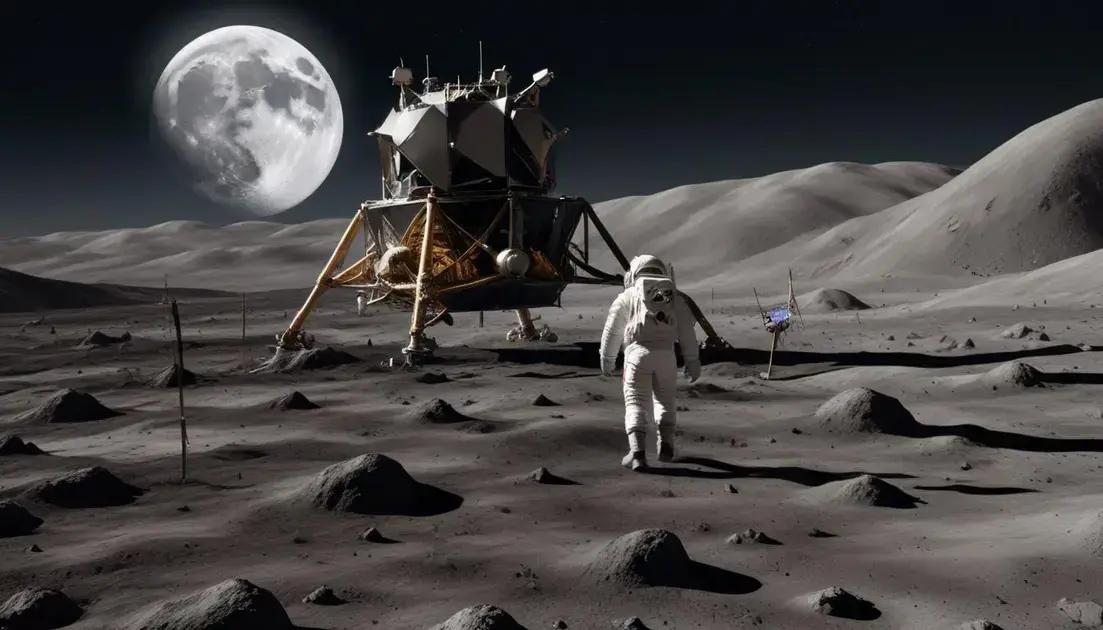
Era of Private Space Travel: SpaceX, Blue Origin and Beyond
Private space travel is rapidly evolving, driven by companies like SpaceX and Blue Origin. These firms are making space exploration more accessible to the public while also pushing technological advancements. Challenges such as safety and regulatory hurdles exist, but numerous opportunities arise, including partnerships with government agencies and the potential for new industries like space tourism. As innovation continues, the future of space travel promises exciting possibilities for civilian exploration.
Private Space Travel is no longer just a dream, as companies like SpaceX and Blue Origin open the doors of the cosmos to civilians. Ever wondered what it feels like to soar beyond our atmosphere?
The Rise of Private Companies in Space Exploration
The rise of private companies in space exploration is changing everything. Companies like SpaceX and Blue Origin are pushing boundaries. They’re making space travel more accessible to people without astronaut training.
These companies are innovating with new technologies that make launches safer and cheaper. This opens the door for more space missions. Private companies can now take on missions that governments once handled alone.
Many of these firms focus on bringing tourists to space. They offer unique experiences, like seeing Earth from above. This is exciting for people who dream of space travel.
Moreover, partnerships between private companies and governments are growing. NASA collaborates with these firms for missions to the ISS. This teamwork helps boost technology and exploration efforts.
As competition heats up, costs are likely to drop further. More players in the industry mean faster advancements and cheaper options for travelers.
Looking ahead, the impact of these private space companies could reshape not just travel, but also science. We may see breakthroughs in understanding our universe. This era is just beginning, and it’s thrilling!
Key Players: SpaceX and Blue Origin
SpaceX and Blue Origin are the two leading companies in private space travel. Both have unique goals and approaches, making them key players in the industry. SpaceX focuses on reducing the cost of space travel. They want to make it affordable for everyone.
Founded by Elon Musk, SpaceX has achieved remarkable milestones. They developed the Falcon rockets and the Dragon spacecraft. These innovations allow them to carry cargo and astronauts to the International Space Station (ISS).
Meanwhile, Blue Origin, started by Jeff Bezos, aims to make space travel safe and routine. Their New Shepard rocket is designed for short trips to the edge of space. It’s perfect for space tourism and research.
Both companies are also paving the way for future exploration. SpaceX is working on the Starship, aimed for missions to Mars. Blue Origin has plans for lunar landers to support NASA’s Artemis program.
Each company’s vision fuels a growing interest in private space travel. People are excited about the possibilities of visiting space and being part of something big. These key players are truly shaping the future of exploration.
The Future of Space Travel for Civilians
The future of space travel for civilians looks bright and promising. With advances in technology, more people will have the chance to experience space. Companies like SpaceX and Blue Origin are leading the way.
Imagine taking a trip to space like you would for a vacation. Soon, this could become a reality. Space tourism is on the rise, and tickets are already being sold for suborbital flights.
During these flights, civilians can enjoy breathtaking views of Earth. They’ll float in zero gravity and feel the thrill of space travel. This will be a life-changing experience for many!
Moreover, the idea of living and working in space may not be far off. Plans for space hotels and research stations are in development. People could spend days or weeks in space, just like on Earth.
As these opportunities grow, safety and training will be a top priority. Companies will ensure that travelers are well-prepared for space. This way, everyone can enjoy a safe adventure beyond our planet.
The dream of traveling to space is becoming a reality for more people. Together, these developments hint at an exciting era in private space exploration.
Impact on Government Space Agencies
The rise of private space companies significantly impacts government space agencies. Agencies like NASA must adapt to this new landscape of space exploration. Increased competition is driving innovation and reducing costs.
Private companies are often faster and more flexible than traditional agencies. They can develop technologies quickly and respond to market needs. This dynamic pushes government agencies to rethink their priorities and strategies.
Many governments are choosing to partner with private firms. These partnerships allow agencies to leverage private sector expertise. They can focus on deep space missions, which require more resources and investments.
For instance, NASA collaborates with SpaceX for transporting astronauts to the ISS. This collaboration reduces costs and increases mission efficiency. It allows NASA to allocate funds to larger projects like returning to the Moon or Mars exploration.
Moreover, government agencies are starting to embrace commercial space travel. They see it as a way to stimulate the economy, create jobs, and inspire the next generation of scientists and engineers.
As the boundaries between private and public space activities blur, we can expect more exciting developments in space exploration. The future is collaborative, and that’s good for everyone.
Challenges and Opportunities in Private Space Travel
Private space travel comes with both challenges and opportunities. As companies like SpaceX and Blue Origin lead the way, they face various obstacles. Safety is a major concern in space travel. Ensuring every launch is safe for civilians is crucial.
Regulations also present a challenge. Governments must create rules for private companies. These rules help manage air traffic and ensure public safety. Navigating this regulatory landscape can be tricky for new businesses.
Another challenge is the high cost of space travel. While prices are dropping, they remain steep for most people. Making space accessible requires innovation in technology and operations.
Despite these challenges, there are many opportunities. As private companies grow, they foster innovation. New technologies can make space travel cheaper and safer. This may lead to exciting developments like space hotels and lunar tourism.
Additionally, the growing interest in space inspires the next generation. Young people are leaning towards science and technology careers. This interest can lead to more talent in the space industry.
As the industry matures, collaborations between private companies and governments can increase. These partnerships can help tackle challenges while expanding opportunities. The future of private space travel is bright, and there’s much to explore.
Conclusion
In conclusion, the rise of private space travel is an exciting development. Companies like SpaceX and Blue Origin are changing the way we explore space. While there are challenges, such as safety and regulations, the opportunities are immense.
We can look forward to affordable trips, new technologies, and partnerships that push boundaries. This innovation not only inspires a new generation but also opens doors for scientific discoveries. As we move forward, the possibilities in space are endless. Embracing these changes will help us reach new heights in exploration and adventure.


